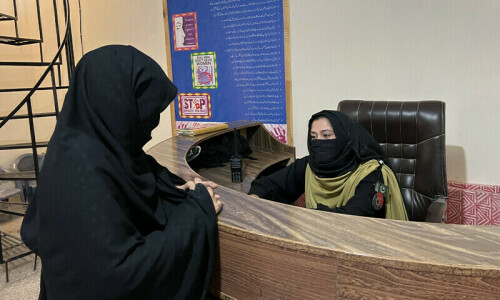PESHAWAR: The National Aids Control Programme (NACP) will conduct the fifth surveillance round of a study in the coming month to find out the number of HIV-infected people in the target population and ensure their fast-track treatment.
Two cities of Khyber Pakhtunkhwa are being covered by the exercise conducted by NACP in collaboration with the World Health Organisation and technical support of the Manitoba University, Bridge Consultants and Bahria University in 23 cities of the country.
KP has approximately 16,000 HIV patients. The results of the surveillance round starting from November will be available by February next year and these will help in carrying out assessment of the biological and behavioural causes among high-risk population exposed to unprotected sex relations and blood contacts.
Health experts say that the new data would enable the government to ensure Treatment for All by year 2030 of HIV patients in accordance with the Political Declaration of 2016.
Experts say exercise aimed at ensuring early treatment of patients
They said that four rounds of the study had taken place since January during which mapping and site estimation had been done. The study would then be seen in the light of other studies conducted in 2012, showing that 20 per cent of the vulnerable population suffered from HIV in Peshawar and if there was an increase the province would be requested by the partner organisations to act swiftly, they said.
Peshawar and Bannu have been included in the programme to know the causes of the HIV/Aids and efforts made to cope with the disease in line with the Political Declaration of 2016 adopted by the UN General Assembly, they said.
The experts said that Pakistan had an estimated 100,000 infected patients, up from 96,000 recorded last year. They said that there was strong resistance to the UN’s calls to adopt concentrated strategy to cope with the disease in Pakistan which was among the 35 countries where fast-track treatment intervention had been recommended.
The declaration also suggests policies in consonance with local needs to ensure social acceptability. They said that the UN agencies associated with HIV-related work were concerned over the recent epidemic in Larkana due to infected dialysis machines and wanted the causative agents of the disease addressed by the government.
Fast-track strategy recommends treatment of all patients irrespective of their CD4 cell count. HIV is a highly communicable disease, but the patients cannot transmit it when they are getting drugs, they said.
The UN also wants the government to pursue a comprehensive and cost-effective strategy in the local context and reach the high-risk population to ensure their treatment. Social taboos associated with the blood-borne disease are also a chronic issue that has beset the UN for years now, they said.
The experts suggested that the government should go after drug addicts to their locations in the cities. They said that resources must be allocated to the right people and units to help the global efforts to do away with the disease. They said that at present efforts were not focused in areas where vulnerable people lived.
Published in Dawn, October 30th, 2016











































Dear visitor, the comments section is undergoing an overhaul and will return soon.